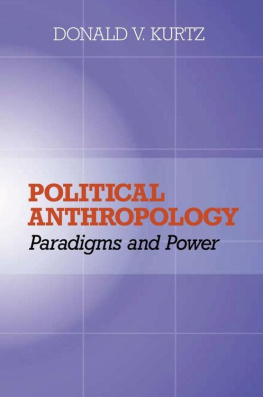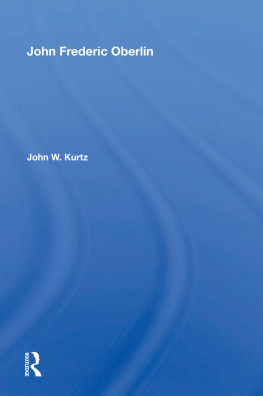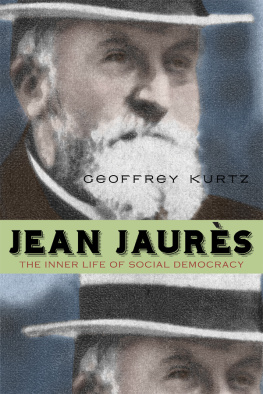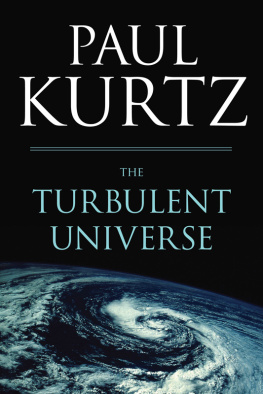Donald V Kurtz - Political Anthropology
Here you can read online Donald V Kurtz - Political Anthropology full text of the book (entire story) in english for free. Download pdf and epub, get meaning, cover and reviews about this ebook. year: 2018, publisher: Taylor and Francis, genre: Politics. Description of the work, (preface) as well as reviews are available. Best literature library LitArk.com created for fans of good reading and offers a wide selection of genres:
Romance novel
Science fiction
Adventure
Detective
Science
History
Home and family
Prose
Art
Politics
Computer
Non-fiction
Religion
Business
Children
Humor
Choose a favorite category and find really read worthwhile books. Enjoy immersion in the world of imagination, feel the emotions of the characters or learn something new for yourself, make an fascinating discovery.
- Book:Political Anthropology
- Author:
- Publisher:Taylor and Francis
- Genre:
- Year:2018
- Rating:5 / 5
- Favourites:Add to favourites
- Your mark:
- 100
- 1
- 2
- 3
- 4
- 5
Political Anthropology: summary, description and annotation
We offer to read an annotation, description, summary or preface (depends on what the author of the book "Political Anthropology" wrote himself). If you haven't found the necessary information about the book — write in the comments, we will try to find it.
Political Anthropology — read online for free the complete book (whole text) full work
Below is the text of the book, divided by pages. System saving the place of the last page read, allows you to conveniently read the book "Political Anthropology" online for free, without having to search again every time where you left off. Put a bookmark, and you can go to the page where you finished reading at any time.
Font size:
Interval:
Bookmark:
Power and Paradigms
Donald V . Kurtz

First published 2001 by Westview Press
Published 2018 by Routledge
711 Third Avenue, New York, NY 10017, USA
2 Park Square, Milton Park, Abingdon, Oxon OX14 4RN
Routledge is an imprint of the Taylor & Francis Group, an informa business
Copyright 2001 Taylor & Francis
All rights reserved. No part of this book may be reprinted or reproduced or utilised in any form or by any electronic, mechanical, or other means, now known or hereafter invented, including photocopying and recording, or in any information storage or retrieval system, without permission in writing from the publishers.
Notice:
Product or corporate names may be trademarks or registered trademarks, and are used only for identification and explanation without intent to infringe.
A CIP catalog record for this book is available from the Library of Congress.
ISBN 13:978-0-8133-3804-0 (pbk)
ISBN 13:978-0-8133-3803-3 (hbk)
TO LIZ,
WITHOUT WHOSE LAUGHTER AT MY TITLES
MY LIFE WOULD BE INCOMPLETE.
YOU MAKE IT ALL WORTHWHILE.
- PART ONE
PARADIGMS AND SCIENCE - PART TWO
POLITICAL ESSENTIALS - PART THREE
PARADIGMS AND TOPICS OF POLITICAL ANTHROPOLOGY
- PART ONE
PARADIGMS AND SCIENCE - PART TWO
POLITICAL ESSENTIALS - PART THREE
PARADIGMS AND TOPICS OF POLITICAL ANTHROPOLOGY
A while back I talked to a colleague about this project. He was a generation younger than I and specialized as an economic anthropologist. He was surprised when I mentioned the different theoretical orientations that have directed research into political anthropology historically. And I was surprised when he commented that political anthropology had always appeared to him to be a dispersed field without a theoretical center. That has not been the case since the field was formally established in 1940 with the publication of African Political Systems (Fortes and Evans-Pritchard 1940). But to a younger scholar who came to the practice of anthropology after the 1970s, the field might appear to be dispersed because since the mid-1970s the methodologies by which anthropologists study political phenomena have emanated from different theoretical centers.
Many political anthropologists of my generation recall with some nostalgia the advent of the actor-oriented processual approach to political phenomena in the mid-1960s. They consider the decade until the mid-1970s to be the heyday of political anthropology and think that it subsequently lost its vigor. But the decade from approximately 1965 to 1975 was a heady period for cultural anthropology at large. Anthropologists heatedly debated the importance of theoretical orientations, such as ethnoscience, structuralism, cultural evolution, and the primacy of substantive and formal economics, as well as the social significance of hot ticket interests, often faddish, such as the culture of poverty, the causes and morality of war, and whether human aggression is biologically or culturally motivated. None of these concerns, including political anthropology, has survived with the same level of urgency that practitioners assigned to them during that time. But the field of political anthropology as a whole remains alive and well, and political anthropologists continue to expand into new directions, as they have since the inception of the field.
In the 1940s and 1950s, political anthropology served as a handmaiden to the structural-functional orientation of British social anthropology. That unfortunate relationship was gradually superseded in the mid-1960s by a processual approach concerned with the role of the political agent. By the 1970s, that orientation was complemented by anthropological approaches to political economy in social anthropology and to political evolution in cultural anthropology and archaeology, each of which was influenced by Marxist theory. Today the role of the agent in political processes is being recuperated in a practice-theory approach to political phenomena. And, although this shift has not yet been acknowledged by many, postmodern anthropologists are taking political anthropology in still other directions, despite naive threats by radical postmodern anthropologists to deconstruct anthropology as a social science. Each of these orientations in one way or another is implicated in the concern anthropologists have with the "state." Instead of lacking a theoretical center, political anthropology, if anything, suffers from too many theoretical sources. But they are not mutually exclusive, and together they comply with the breadth and depth that the anthropological perspective brings to the study of the human condition, which is its best conceit.
As is the case in most other anthropology subfields, political anthropologists study and analyze political phenomena in all the kinds of human societies of which we have any record and from the earliest prehistoric formation of these societies to the present. This scope may sound audacious, but that is what the anthropological enterprise is all about, and what makes it at once exciting and frustrating. One can never know all there is to know, even within the narrow specialties, such as political anthropology, by which we in our guise as scholars identify ourselves. The earned conceit that anthropologists bring to the study of political phenomena is obvious if we compare the anthropological approach to political phenomena to that of other social sciences. These approaches can be identified as minimalist and maximalist (Balandier 1970).
Political scientists and sociologists, for example, have a minimalist view of political phenomena. To most of them, especially political scientists, government and political phenomena transpire and exist within formal political institutions, almost all of which are associated with modern state formations. That the government of a political community might exist in other nonpolitical institutions is largely alien to their thinking. Yet that is exactly what political anthropologists confronted and had to sort out.
Anthropologists developed a maximalist approach to study political phenomena because they discovered that in the preindustrial, precapitalist, non-Western societies that provided their research subjects, practices and structures of government and other political practices often transpired in unlikely contexts, such as witchcraft and sorcery, and in curious institutional settings, such as kinship associations, age sets, secret societies, and among shamans. Simply put, not all the kinds of societies for which anthropologists have written ethnographies, such as nomadic hunters and gatherers and some horticultural and pastoral peoples, have formal political institutions. But every human society, regardless how institutionally simple, has some form of political organization and leadership, despite early, romanticized ideas to the contrary (Radcliffe-Brown 1922; MacLeod 1931; Redfield 1956; Murdock 1957; Sharp 1958). The different approaches that anthropologists use to understand political phenomena are responses to the variety and complexity of the human political condition that is either largely unknown or of little interest to political scientists and political sociologists.
Just as I have written above, in day-to-day discourse political anthropologists (and others) commonly refer to the "orientations" or "approaches" by which they study political phenomena. Each of the approaches by which anthropologists try to understand and explain political phenomena is characterized by a compatible body of theory, concepts, and strategies that direct their research. Yet it is more accurate to think of each of these research constellations as a paradigm that provides its dedicated practitioners with the scientific tools to investigate and explain political phenomena through normal scientific practices (Kuhn 1970). The paradigms through which political anthropologists have pursued their research agendas are the focus of this work.
Font size:
Interval:
Bookmark:
Similar books «Political Anthropology»
Look at similar books to Political Anthropology. We have selected literature similar in name and meaning in the hope of providing readers with more options to find new, interesting, not yet read works.
Discussion, reviews of the book Political Anthropology and just readers' own opinions. Leave your comments, write what you think about the work, its meaning or the main characters. Specify what exactly you liked and what you didn't like, and why you think so.











